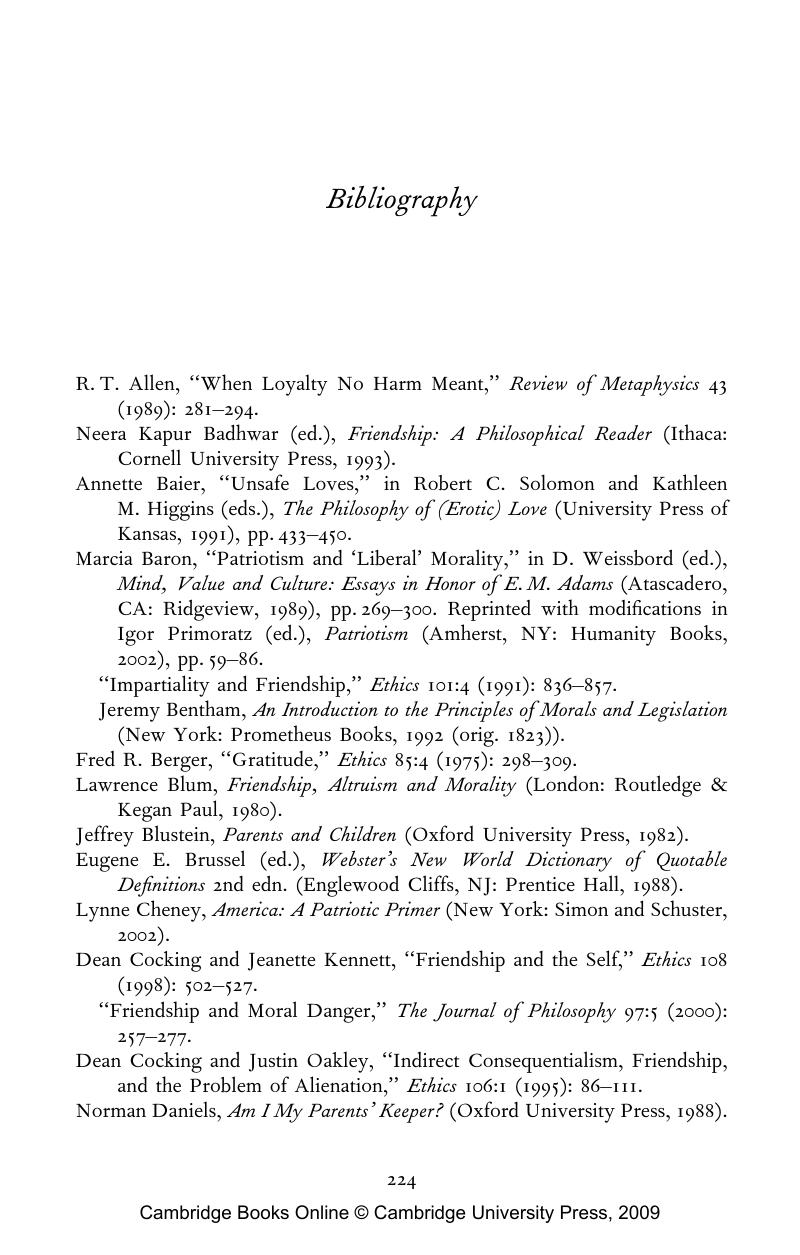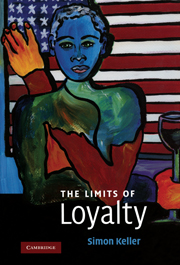Book contents
- Frontmatter
- Contents
- Preface
- Acknowledgements
- Chapter 1 What is loyalty?
- Chapter 2 Friendship and belief
- Chapter 3 What is patriotism?
- Chapter 4 Against patriotism
- Chapter 5 Filial duty: debt, gratitude and friendship
- Chapter 6 Filial duty: special goods and compulsory loyalty
- Chapter 7 Is loyalty a value? Is loyalty a virtue?
- Chapter 8 Communitarian arguments for the importance of loyalty
- Chapter 9 Josiah Royce and the ethics of loyalty
- Chapter 10 Disloyalty
- Conclusion
- Postscript: universal morality and the problem of loyalty
- Bibliography
- Index
- References
Bibliography
Published online by Cambridge University Press: 22 September 2009
- Frontmatter
- Contents
- Preface
- Acknowledgements
- Chapter 1 What is loyalty?
- Chapter 2 Friendship and belief
- Chapter 3 What is patriotism?
- Chapter 4 Against patriotism
- Chapter 5 Filial duty: debt, gratitude and friendship
- Chapter 6 Filial duty: special goods and compulsory loyalty
- Chapter 7 Is loyalty a value? Is loyalty a virtue?
- Chapter 8 Communitarian arguments for the importance of loyalty
- Chapter 9 Josiah Royce and the ethics of loyalty
- Chapter 10 Disloyalty
- Conclusion
- Postscript: universal morality and the problem of loyalty
- Bibliography
- Index
- References
Summary

- Type
- Chapter
- Information
- The Limits of Loyalty , pp. 224 - 228Publisher: Cambridge University PressPrint publication year: 2007



